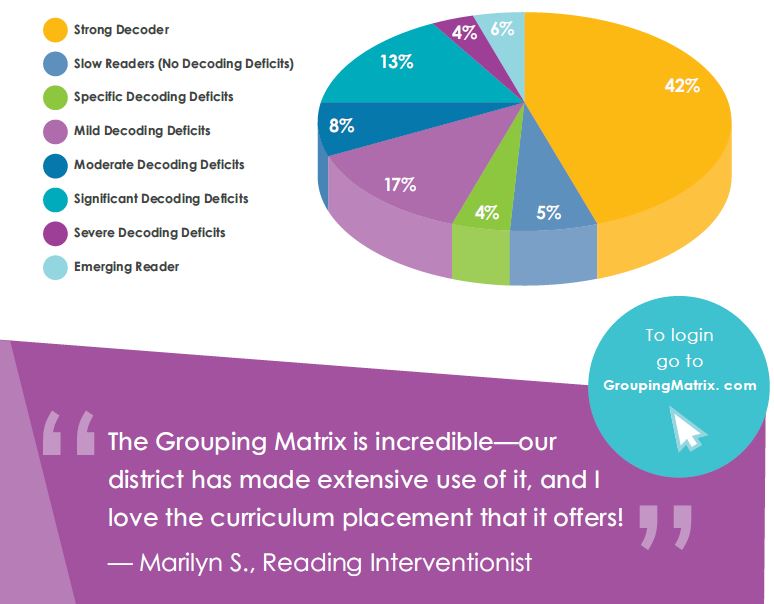Complimentary Reading Assessments (K-12)
In just 5-7 minutes, Really Great Reading's complimentary diagnostic decoding assessments answer these key questions: Which students are struggling with decoding? What types of words are they struggling with? What is the source of the underlying confusion? They contain everything you’ll need for the initial assessment of an unlimited number of students with an explanation of how the data can be added to the Grouping Matrix to group, progress monitor, and plan the type of instruction that will yield the greatest results.
Not sure which assessments to use? Use our Recommended Assessment Timeline and Flowcharts to help guide you through the process.
The data collected from these assessments can help you determine whether foundational reading skills are being established at an appropriate pace, pinpoint specific gaps in knowledge, and plan appropriately targeted instruction. The results of these surveys can be plugged into our Grouping Matrix, a free, web-based system that enables you to group students according to the type and depth of their decoding difficulties.

How can you use data to group students according to their decoding strengths and weaknesses?
Use our complimentary, web-based, password-protected, secure student data management interface, the Grouping Matrix. It enables you to group students (K-12) according to the type and depth of their decoding difficulties using data from grade-level Oral Reading Fluency passages (such as DIBELS, AIMSWeb, Six Minute Solutions, Read Naturally, EasyCBM) and our complimentary diagnostic assessments. If you have questions about the Grouping Matrix please email us.
Grouping Matrix Quick Facts:
- Uses data to group students according to their decoding strengths and weaknesses
- Identifies and groups students for decoding instruction
- Provides easy-to-read progress monitoring reports and graphs
- Enables progress monitoring for both individuals and groups
Really Great Reading offers a family of complimentary diagnostic decoding assessments to help educators understand their students' word-level reading skills. In 5 to 7 minutes per student, discover whether decoding deficits are inhibiting your students' ability to read. Download complimentary copies above and watch the following informational and instructional videos.
